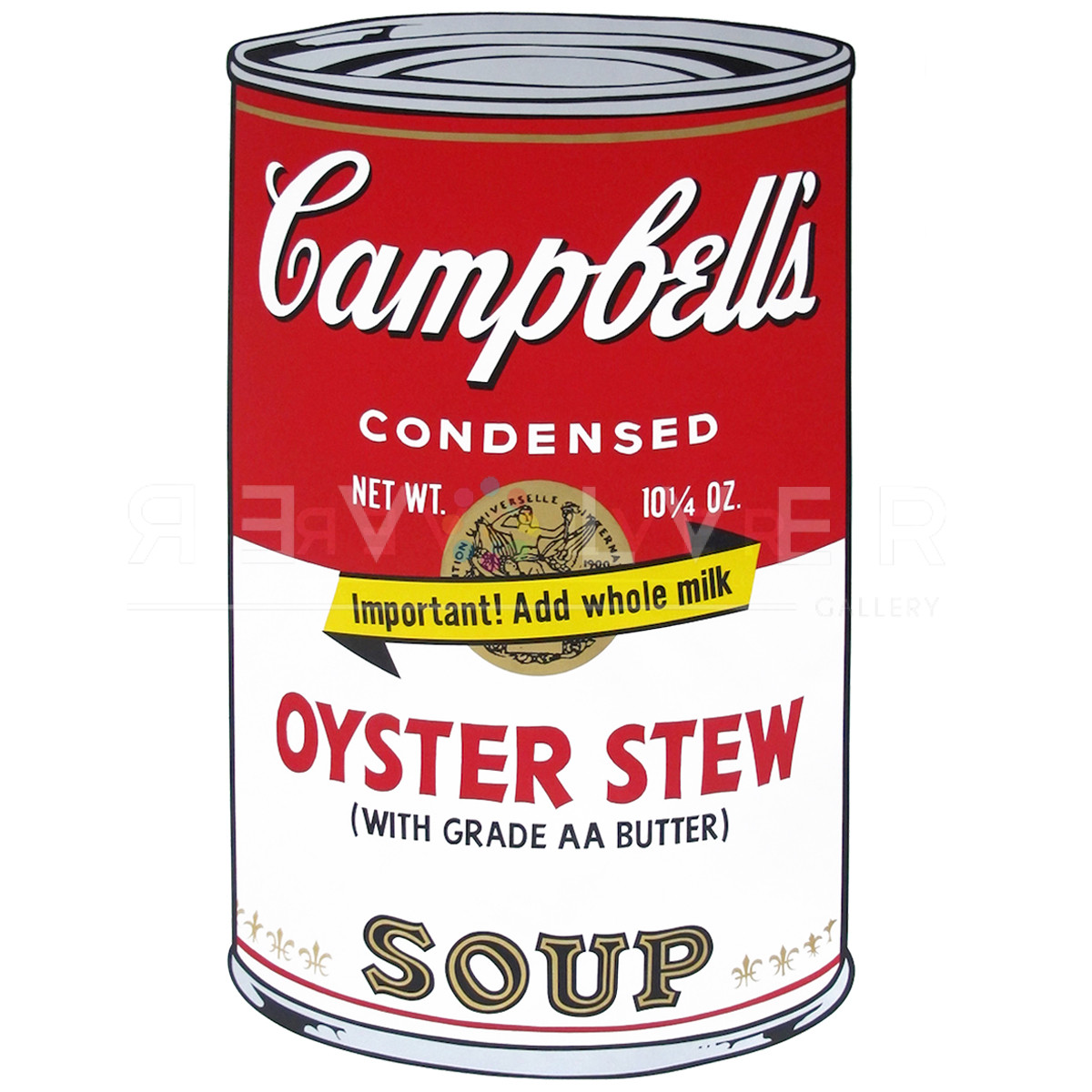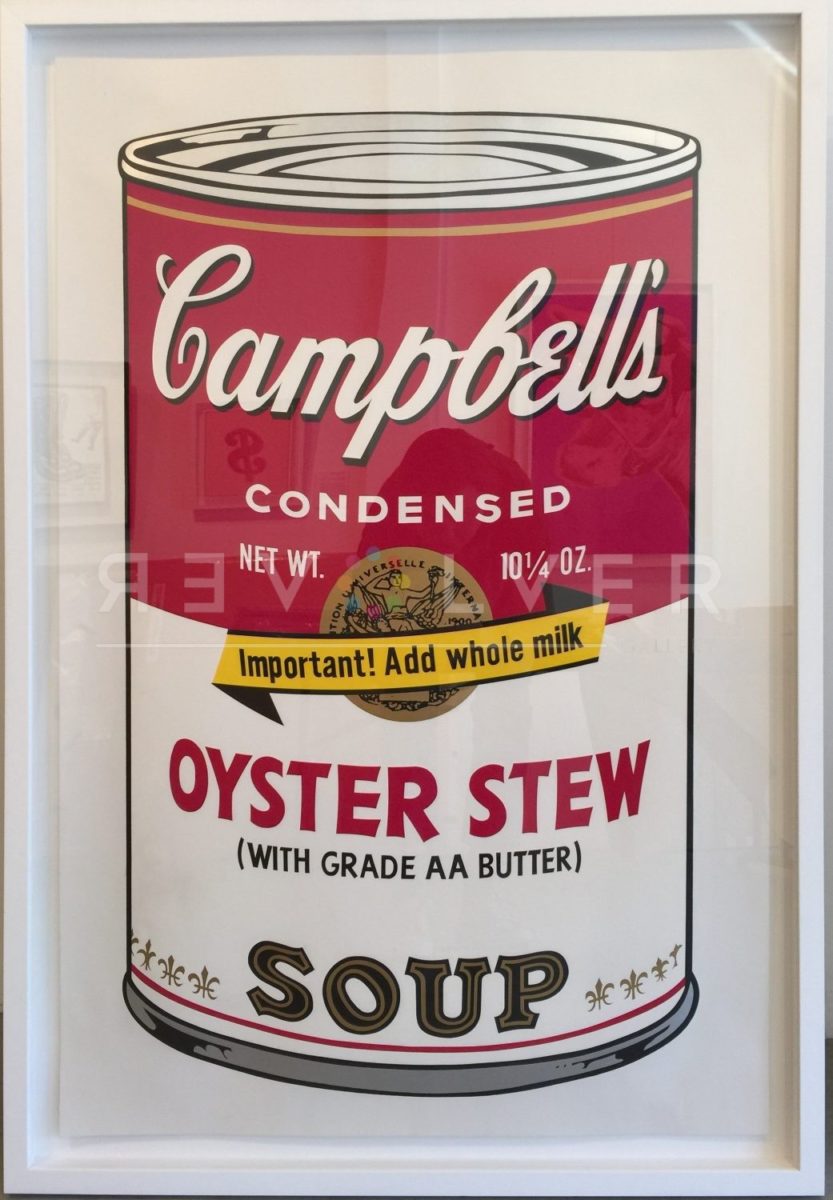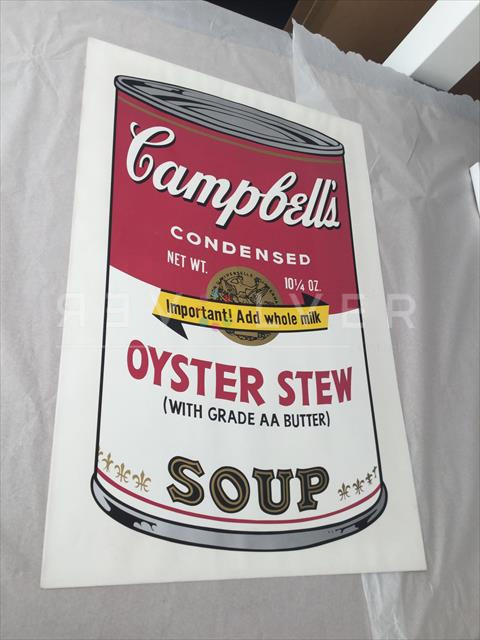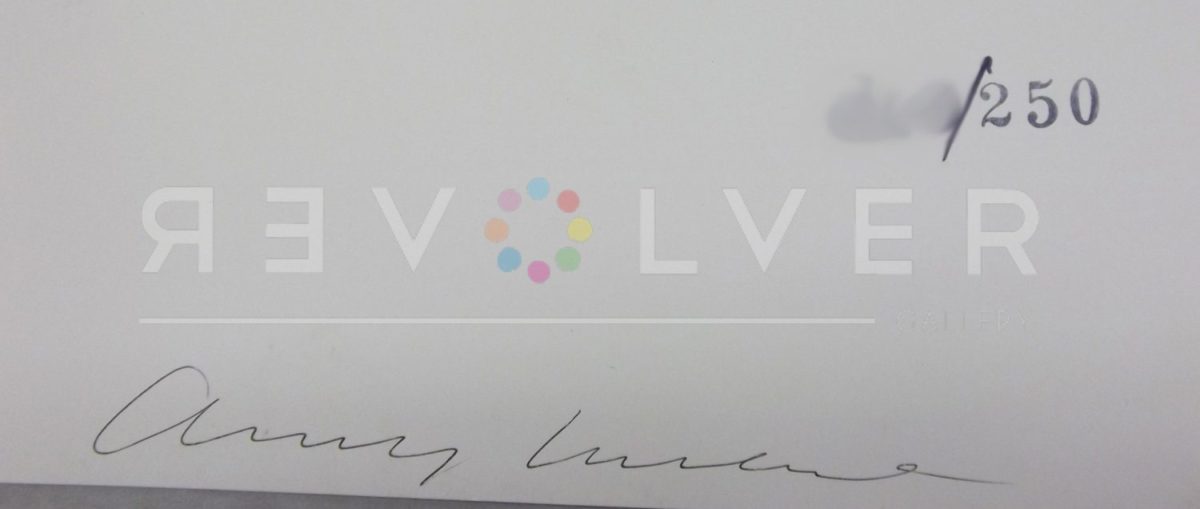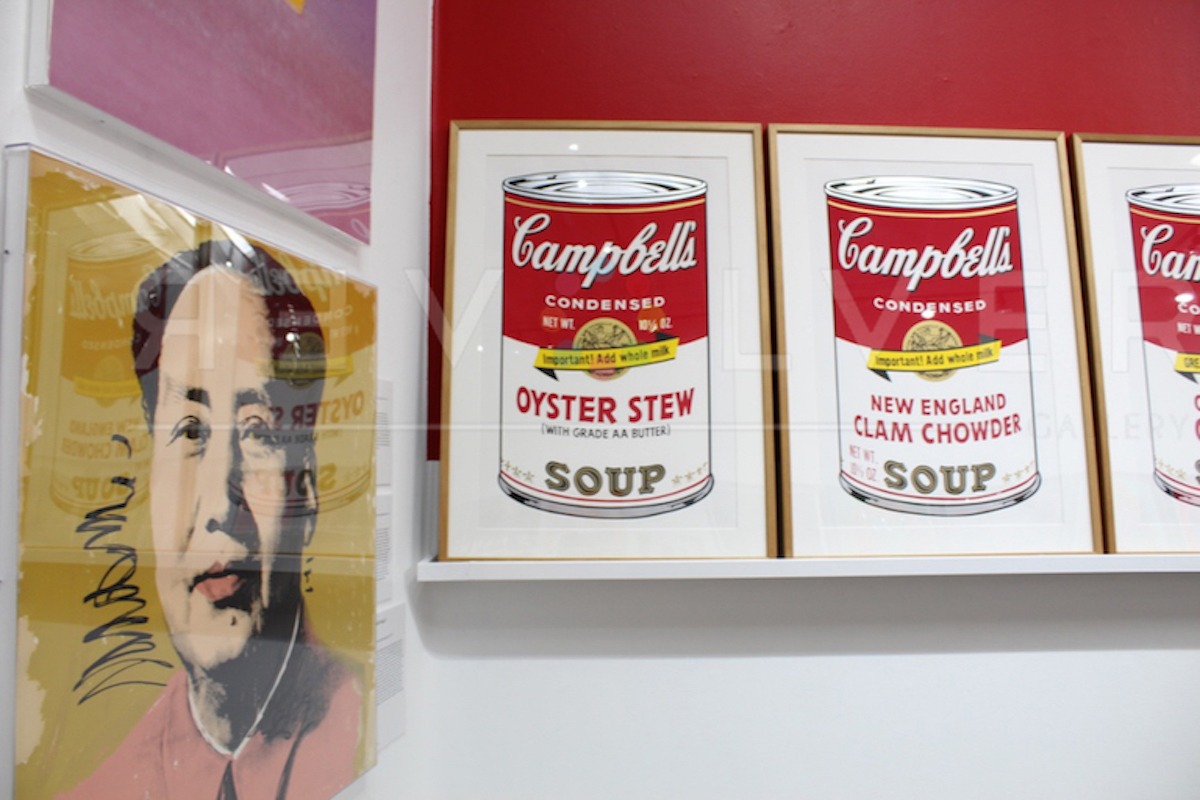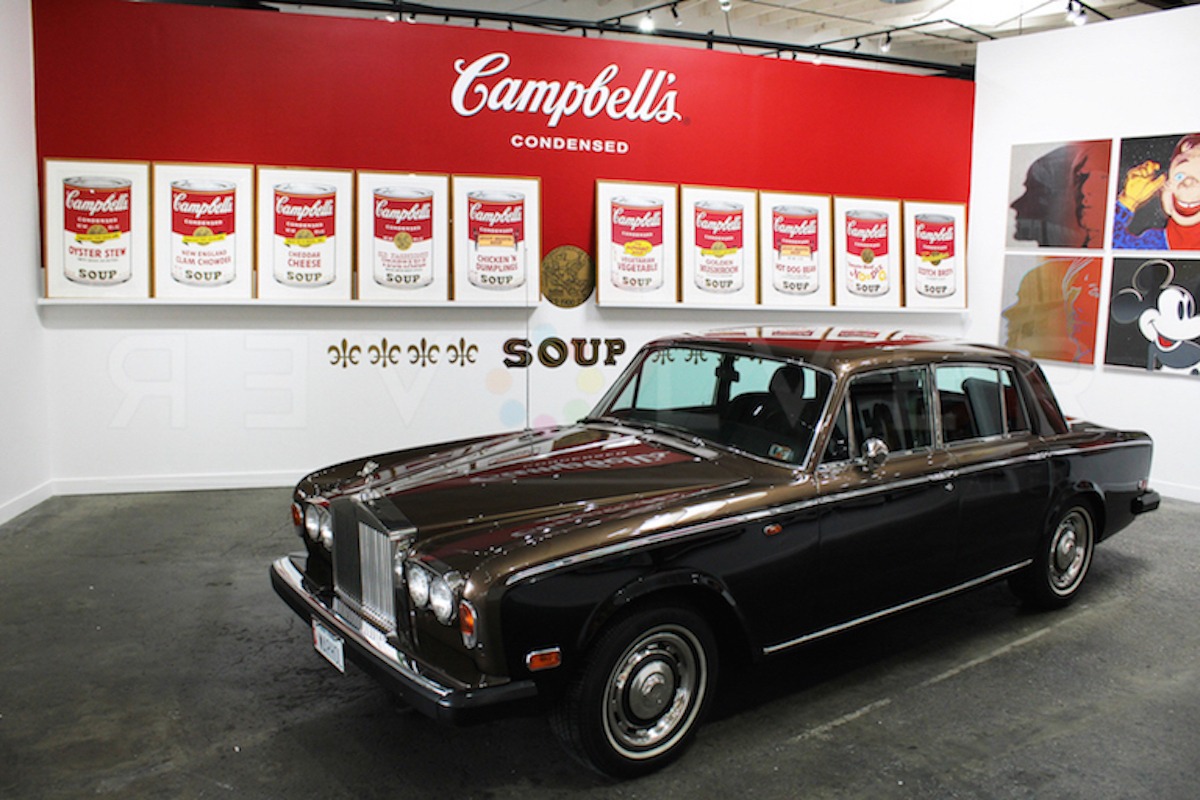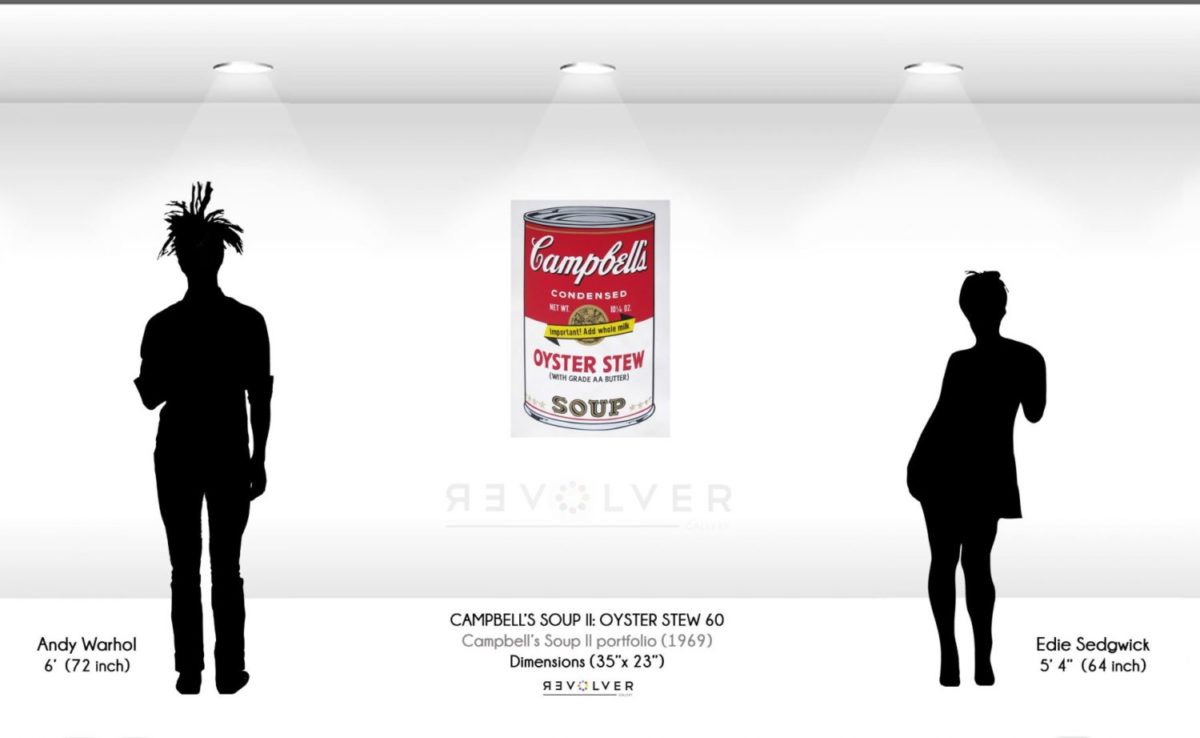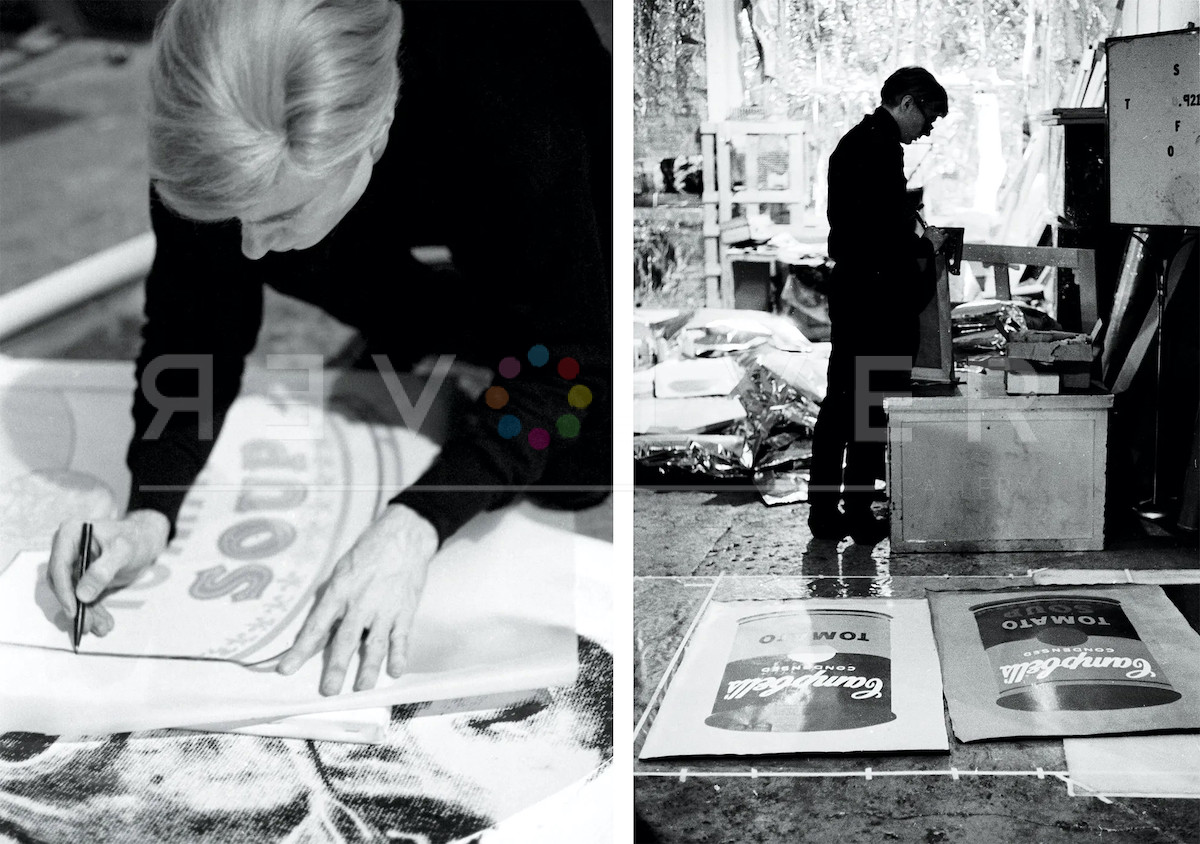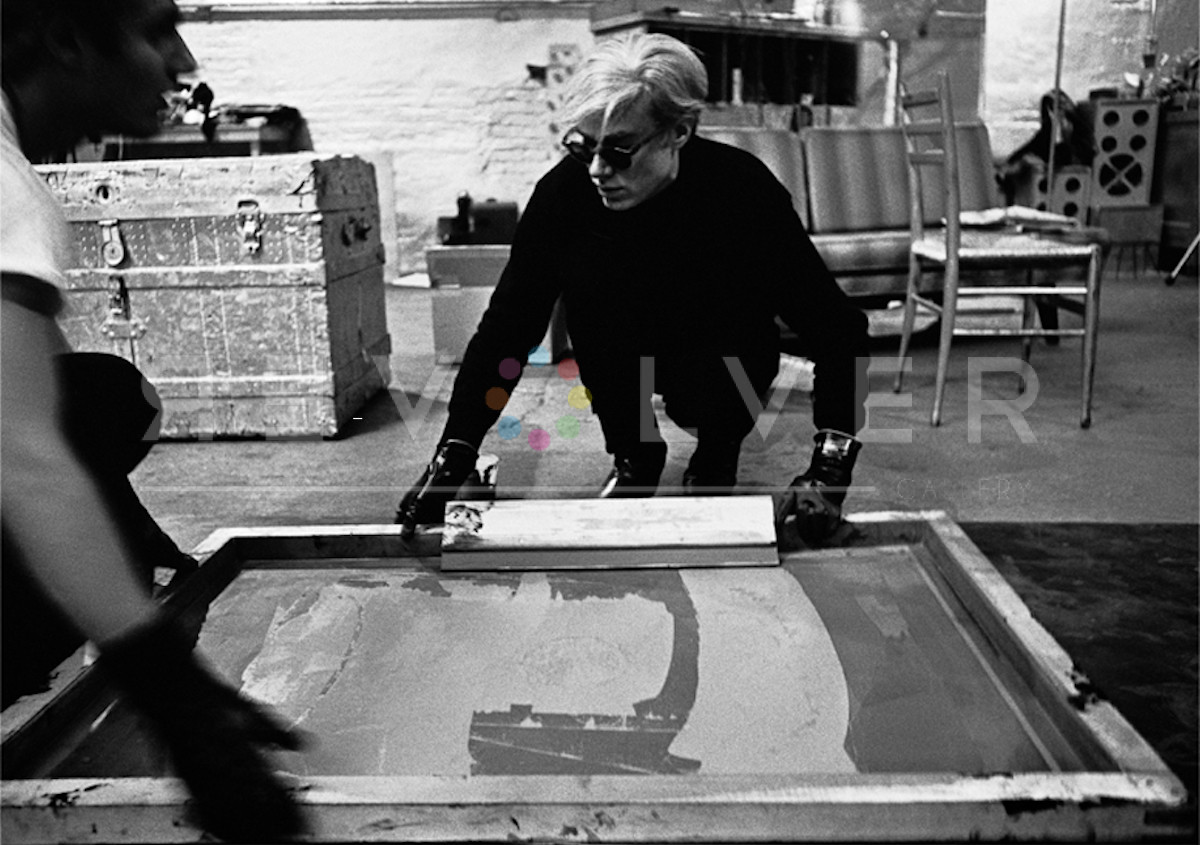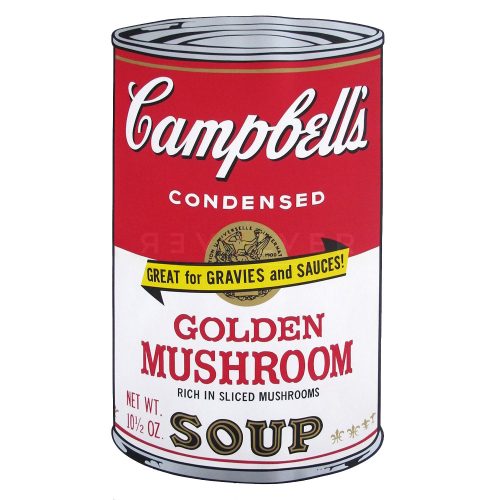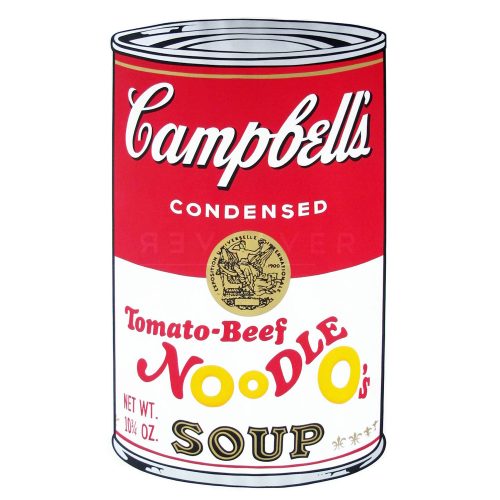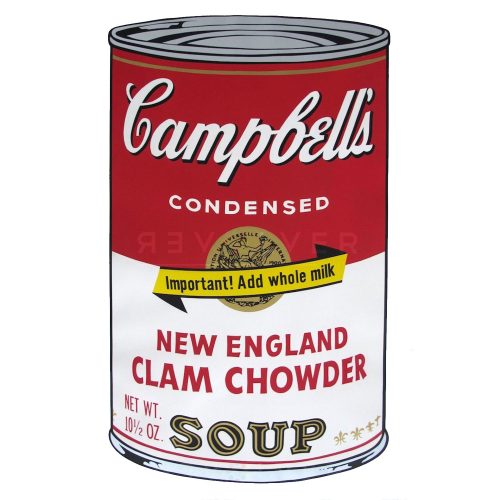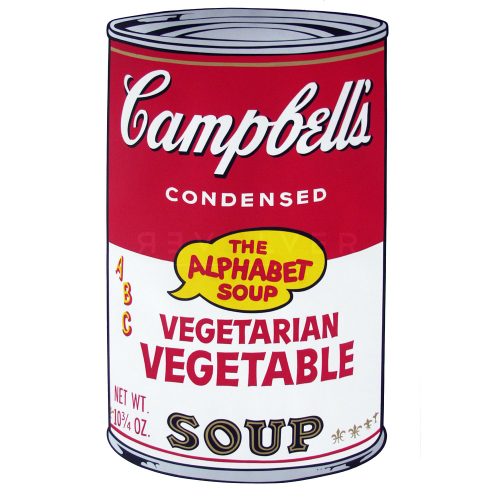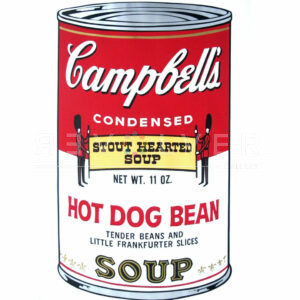Campbell’s Soup Cans II: Oyster Stew 60 by Andy Warhol is one of ten prints included in his second Campbell’s Soup Cans portfolio, published in 1969. This print is part of a continuation of Campbell’s Soup Cans I from 1968. Published seven years after his original 32 Campbell’s Soup Cans paintings, this new portfolio focused on more uncommon flavors, each of which has their own unique labels. With their revolutionary design and conceptual style, Warhol’s pop-art style soup cans took the art world by storm. The bold images initially shocked artists and critics when Andy debuted them at his first solo exhibition. Many people saw the work as grossly appropriative. However, the exhibition was an ultimate success, as many people liked his work and the controversy helped him gain traction. Through the mixed reviews, they remain as some of the most provocative pieces of modern art history.
To create his own brand of Pop-art, Warhol appropriated well known objects of consumer culture and transformed them fine art. Warhol took the simple design and blew it up to a 35×32 inch print, with its flat and bold composition. The work indicates Warhol’s early style, in which he would often tempt audiences to question common notions of artistic value. The Campbell’s Soup Cans challenged what could be deemed socially and artistically acceptable, ultimately changing the trajectory of art history.
Warhol’s prints like Campbell’s Soup Cans II: Oyster Stew are ultimately is one of the most iconic images of modern art, which Warhol used to convey his thoughts on the world of consumerism and advertisement. Warhol created similar works by appropriating images of household products such as Coca-Cola and Brillo Boxes. Warhol’s use of repetition adds to the advertisement style, resembling the look of billboards and the spirit of mass-production.
In Warhol’s Campbell’s Soup Cans I series, he produced exact replicas of Campbell’s product. This series is a bit different. Instead of the tradition Campbell’s seal, Warhol illustrated unique designs for each flavor. In Oyster Stew 60, a banner wraps around the golden seal, reading, “Important! Add whole milk”, and “WITH GRADE AA BUTTER”. Other works from this series include New England Clam Chowder 57, Tomato-Beef Noodle O’s 61, Cheddar Cheese 63, and Vegetarian Vegetable 56. These unusual soups of Campbell’s Soup II are all real flavors of Campbell’s Soup.
Not only did consumerism and mass-production fascinate Andy, but he also expressed his personal connection to Campbell’s. “I used to drink it [Campbell’s Soup], I used to have the same lunch every day, for twenty years, I guess, the same thing over and over again”. Some people say Warhol painted the soups simply because he liked the way they tasted. Others believe the work exhibits great conceptual depth, and Warhol’s experimentation with the context of art.
Warhol’s love for mass-production, advertisement and Campbell’s soup all morphed together to create these portfolios. Although the Campbell’s soup cans are arguably some of his most notable works, the artist received some backlash after showcasing his original 32 Campbell’s Soup Cans series. Due to the unfamiliar subject matter of Warhol’s Soup Cans, some people questioned the significance of his work. Fifty-nine years after their debut, people still may debate the value of Warhol’s soup cans.
Thus, the humble images are amongst the most profound works of modern art. Along with works like Marilyn Monroe, the soups allowed Warhol to scale the heights of the pop-art movement, and cemented his legacy as the pop-art king. Campbell’s Soup Cans II: Oyster Stew 60 soon became a quintessential item of pop-art culture. Warhol published his soups at the dawn of the new art movement, helping to launch the genre to the mainstream. Still to this day, Warhol’s soup cans rule the pop-art world.
Photo Credits:
- Andy Warhol tracing Campbell’s Soup silkscreen, The Factory, New York City, circa 1965 © Estate of Nat Finkelstein © 2021 The Andy Warhol Foundation for the Visual Arts, Inc. / Licensed by DACS, London
- Andy Warhol and Gerard Malanga make a painting, 1964
Vintage gelatin silver print, 10¼ × 14¾ inches; 26 × 38 cm. Photo by Matthew Marks. - Andy Warhol, 1964. Vintage gelatin silver print, 10¼ × 14¾ inches; 26 × 38 cm. Photo by Matthew Marks.

